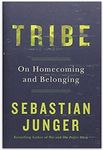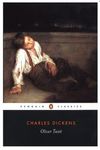PLOTS & PAGES 2021 BOOK LIST - Mendon Township Library
←
→
Page content transcription
If your browser does not render page correctly, please read the page content below
PLOTS & PAGES 2021 BOOK LIST
Meeting the third Thursday of the month, at 7:05 pm, at Mendon Township Library
January – Share an Agatha Christie Novel
February – Share a Biography
March – The Orphan Collector by Ellen Marie Wiseman.
In the fall of 1918, thirteen-year-old German immigrant Pia Lange longs to be far from
Philadelphia’s overcrowded slums and the anti-immigrant sentiment that compelled her father to
enlist in the U.S. Army. But as her city celebrates the end of war, an even more urgent threat
arrives: the Spanish flu. Funeral crepe and quarantine signs appear on doors as victims drop dead
in the streets and desperate survivors wear white masks to ward off illness. When food runs out
in the cramped tenement she calls home, Pia must venture alone into the quarantined city in search
of supplies, leaving her baby brothers behind.
April – The Dutch House by Ann Patchet.
At the end of the Second World War, Cyril Conroy combines luck and a single canny investment
to begin an enormous real estate empire, propelling his family from poverty to enormous wealth.
His first order of business is to buy the Dutch House, a lavish estate in the suburbs outside of
Philadelphia. Meant as a surprise for his wife, the house sets in motion the undoing of everyone
he loves.
May – America for Beginners by Leah Franqui.
Pival Sengupta has done something she never expected: She has booked a trip with the First Class
India USA Destination Vacation Tour Company. But unlike other upper-class Indians on a foreign
holiday, the recently widowed Pival is not interested in sightseeing. She is traveling thousands of
miles from Kolkota to New York on a cross-country journey to California, where she hopes to
uncover the truth about her beloved son, Rahi. A year ago Rahi devastated his very traditional
parents when he told them he was gay. Then Pival's husband, Ram, told her that their son had
died suddenly - heartbreaking news she still refuses to accept. Now, with Ram gone, she is going
to America to find Rahi, alive and whole or dead and gone, and come to terms with her own life.June – Tribe by Sebastian Junger.
Decades before the American Revolution, Benjamin Franklin lamented that English settlers were
constantly fleeing over to the Indians - but Indians almost never did the same. Tribal society has
been exerting an almost gravitational pull on Westerners for hundreds of years, and the reason
lies deep in our evolutionary past as a communal species. The most recent example of that
attraction is combat veterans who come home to find themselves missing the incredibly intimate
bonds of platoon life. The loss of closeness that comes at the end of deployment may explain the
high rates of post-traumatic stress disorder suffered by military veterans today.
Combining history, psychology, and anthropology, Tribe explores what we can learn from tribal
societies about loyalty, belonging, and the eternal human quest for meaning. It explains the irony
that - for many veterans as well as civilians - war feels better than peace, adversity can turn out
to be a blessing, and disasters are sometimes remembered more fondly than weddings or tropical
vacations. Tribe explains why we are stronger when we come together and how that can be
achieved even in today's divided world.
July – Hillbilly Elegy by J.D. Vance.
Hillbilly Elegy is a passionate and personal analysis of a culture in crisis—that of white working-
class Americans. The disintegration of this group, a process that has been slowly occurring now
for more than forty years, has been reported with growing frequency and alarm, but has never
before been written about as searingly from the inside. J. D. Vance tells the true story of what a
social, regional, and class decline feels like when you were born with it hung around your neck.
August – Pachinko by Min Jin Lee.
In the early 1900s, teenaged Sunja, the adored daughter of a crippled fisherman, falls for a
wealthy stranger at the seashore near her home in Korea. He promises her the world, but when
she discovers she is pregnant--and that her lover is married--she refuses to be bought. Instead,
she accepts an offer of marriage from a gentle, sickly minister passing through on his way to
Japan. But her decision to abandon her home, and to reject her son's powerful father, sets off a
dramatic saga that will echo down through the generations.September – The Vanishing Half by Brit Bennett.
The Vignes twin sisters will always be identical. But after growing up together in a small,
southern black community and running away at age sixteen, it's not just the shape of their daily
lives that is different as adults, it's everything: their families, their communities, their racial
identities. Many years later, one sister lives with her black daughter in the same southern town
she once tried to escape. The other secretly passes for white, and her white husband knows nothing
of her past. Still, even separated by so many miles and just as many lies, the fates of the twins
remain intertwined. What will happen to the next generation, when their own daughters'
storylines intersect?
October – Blood Feud by Lisa Alther.
America's most notorious family feud began in 1865 with the murder of a Harmon McCoy, a Union
soldier, by a Confederate Hatfield relative. But Southern grudges run long and deep. More than a
decade later tempers flared over stolen hogs. This accusation triggered years of bloody violence
and retribution that led to a tragic Romeo-and-Juliet interlude, a Supreme Court ruling, and
Kentucky’s last public hanging. The final feud trial took place in 1898, but the rivalry didn’t end
there. Its legend continues to have an enormous impact on the popular imagination and the people
of the region. Here is a fascinating new look at the infamous story of the Hatfields and the McCoys.
November – The Mystery of Mrs. Christie by Marie Benedict.
In December 1926, Agatha Christie goes missing. Investigators find her empty car on the edge of
a deep, gloomy pond, the only clues some tire tracks nearby and a fur coat left in the car—strange
for a frigid night. Her husband and daughter have no knowledge of her whereabouts, and England
unleashes an unprecedented manhunt to find the up-and-coming mystery author. Eleven days
later, she reappears, just as mysteriously as she disappeared, claiming amnesia and providing no
explanations for her time away.
December – Oliver Twist by Charles Dickens.
The story of Oliver Twist - orphaned, and set upon by evil and adversity from his first breath -
shocked readers when it was published. After running away from the workhouse and pompous
beadle Mr Bumble, Oliver finds himself lured into a den of thieves peopled by vivid and memorable
characters - the Artful Dodger, vicious burglar Bill Sikes, his dog Bull's Eye, and prostitute Nancy,
all watched over by cunning master-thief Fagin. Combining elements of Gothic Romance, the
Newgate Novel and popular melodrama, Dickens created an entirely new kind of fiction, scathing
in its indictment of a cruel society, and pervaded by an unforgettable sense of threat and mystery.You can also read























































